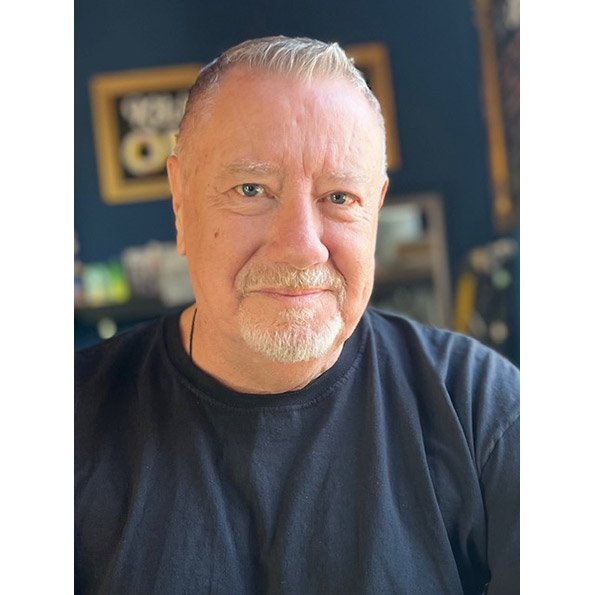The Heart Itself, Tony Flynn
Exactly forty years ago the anthology A Rumoured City, New Poets from Hull, edited by Douglas Dunn and prefaced by Philip Larkin, presented ten arresting young talents. We are proud to mark that anniversary by publishing the latest collection from Tony Flynn, one of the most compelling voices in the volume – indeed, in the country.
Exactly forty years ago the anthology A Rumoured City, New Poets from Hull, edited by Douglas Dunn and prefaced by Philip Larkin, presented ten arresting young talents. We are proud to mark that anniversary by publishing the latest collection from Tony Flynn, one of the most compelling voices in the volume – indeed, in the country.
Exactly forty years ago the anthology A Rumoured City, New Poets from Hull, edited by Douglas Dunn and prefaced by Philip Larkin, presented ten arresting young talents. We are proud to mark that anniversary by publishing the latest collection from Tony Flynn, one of the most compelling voices in the volume – indeed, in the country.
Light out of Dark: Tony Flynn’s The Heart Itself
I chose Jason Shipley’s magnificent cover photograph of Flamborough Lighthouse because it provides an objective correlative to Tony Flynn’s project of discovering moments of illumination – religious, spiritual, romantic, sexual, paternal – in an otherwise darkening world. I liked the fact that the brilliance in the sky, which one might for a moment think of as emanating from the lighthouse, on second sight is clearly natural – not the result of human intervention at all. This accords with Flynn’s tendency to equate his most intense spots of illumination with acts of grace, as gifts rather than the products of human agency. His poems are the cupped hands in which he catches the light.
How does he manage it? Flynn’s ‘less is more’ style owes something to American poetry: Ezra Pound’s and Hilda Doolittle’s incisive versions of Imagism, perhaps; or the rich and austere Objectivism of George Oppen. However, his minimalism might also be compared to that of post-war European poets like Brecht in Germany, Holub in the Czech Republic, Rozewicz in Poland and Pilinszky in Hungary. Where the Americans are often viewed as stripping language down after the excesses of Victorianism, the Europeans arrived at a comparable simplicity by building language up, syllable by patient syllable, after the extermination of meaning at Auschwitz, Treblinka and Katyn.
In Flynn’s strong lines these two different forms of ‘language-washing’ come together as he attempts to discover how many of poetry’s sacrosanct conventions can be dispensed with, and in what combinations, in order to arrive at that resistant thing, the undecorated essence of, the bedrock of poetry. In a context of existential despair, the pared back language serves to magnify the glare of revelation, as in these tender lines on becoming a father in later life:
These wondrous years – You the wick
at the heart of a flame that skips and flares
where scant light was
before you were.
Or these, on a moment of sexual awakening:
The shock of the wholly other,
amazing the course of an ordinary
day. The Annunciation was like this,
and you (no less of a virgin
as far as men go) stepping
out of the shower and into my arms.
Against the odds, the world at once
what is and what is more.
Or these paradoxically lovely lines mourning the death of his friend and fellow poet Tony Griffin:
Brilliant sun across the page
and everything’s lost
in a blinding glare; nothing
remains of what was there.
Such moments of redemption feel all the more sure and true for being set alongside invocations of agonized illuminati like Rimbaud (who died young of cancer), Rilke (whose life was cut short by leukaemia), Simone Weil (her tuberculosis exacerbated by self-starvation) and Paul Celan (who survived the Holocaust that consumed his parents only to commit suicide in 1970).
As with Jason’s photograph, despite the encompassing gloom – I’m dazzled; dazzled by the light.
John Osborne
LegalHighsPress

